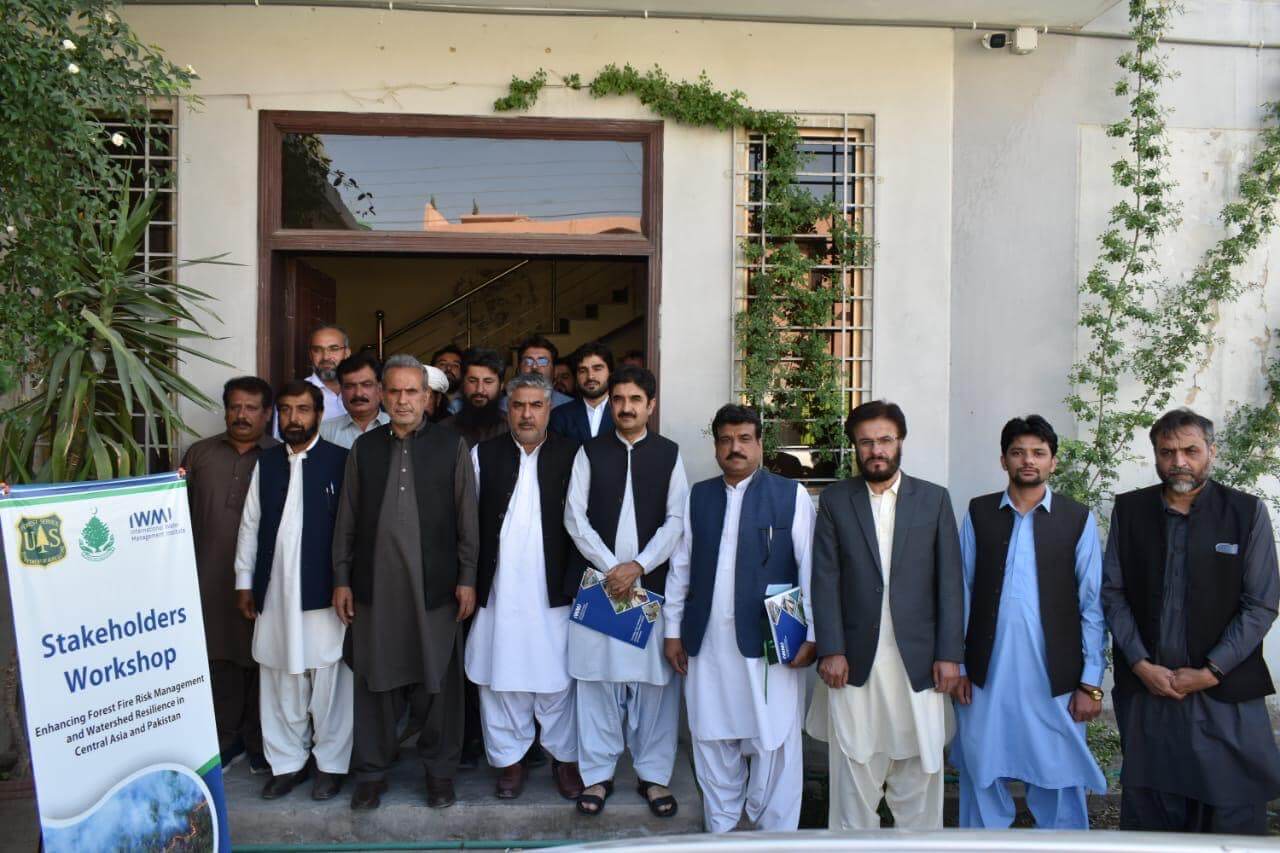News Desk:
Quetta, May 6, 2025 — Experts and stakeholders have sounded the alarm over the growing threat of forest fires in Balochistan, urging immediate measures including advanced technology deployment, legal reforms, and stronger collaboration among institutions and local communities.
The calls were made during a workshop on “Enhancing Forest Fire Risk Management and Watershed Resilience in Central Asia and Pakistan,” held in Quetta. The event was organized by the Forest and Wildlife Department Balochistan and the International Water Management Institute (IWMI) under a United States Forest Service (USFS)-funded initiative.
Speaking on the occasion, Secretary of the Forest and Wildlife Department Balochistan, Abdul Fateh Bhanger, emphasized the urgent need for an integrated approach to prevent wildfires. He revealed that new fire management schemes have been proposed in the province’s Public Sector Development Program for 2025–26, and expressed hope that organizations like IWMI would continue supporting efforts to tackle forest fires, floods, and droughts.
Dr. Mohsin Hafiz, Global Director for Water, Food & Ecosystems at IWMI, highlighted the project’s objectives and IWMI’s broader role in climate adaptation and natural disaster management. Other speakers, including Chief Conservators Ghulam Muhammad and Muhammad Aslam Buzdar, UGPP Project Director Syed Ali Imran, IWMI Consultant Dr. Sarfraz Ahmed, Conservators Naeem Javed and Sagheer Ahmed, and BUITEMS’ Ahmed Shah, recalled the devastating 2022 forest fire in Sherani district’s Chilgoza forest. That fire destroyed 1,542 hectares of woodland, wiped out nearly 840,000 trees, and released an estimated 1.5 million tons of carbon emissions—tragically claiming three lives.
Speakers stressed that while climate change contributes to forest fires, many incidents in Balochistan and Khyber Pakhtunkhwa are human-induced. They noted that prior to 2022, awareness around fire risks remained dangerously low.
District Sherani has been identified as one of the seven most vulnerable regions. Although a legal framework now exists to take action against those causing fires intentionally, the forest department still grapples with challenges such as inadequate funding, outdated equipment, poor communication systems, and insufficient infrastructure.
The workshop called on the government and civil society to establish a joint early warning and response system. It also emphasized the importance of educating local communities to prevent future disasters.
The event featured a panel discussion and drew participants from academia, the Pakistan Meteorological Department, Provincial Disaster Management Authority (PDMA), Civil Defence, and local forest officials. Moderation was conducted by IWMI’s Dr. Syed Muhammad Khair and BFWD’s Mr. Nasrullah Mandokhel.






